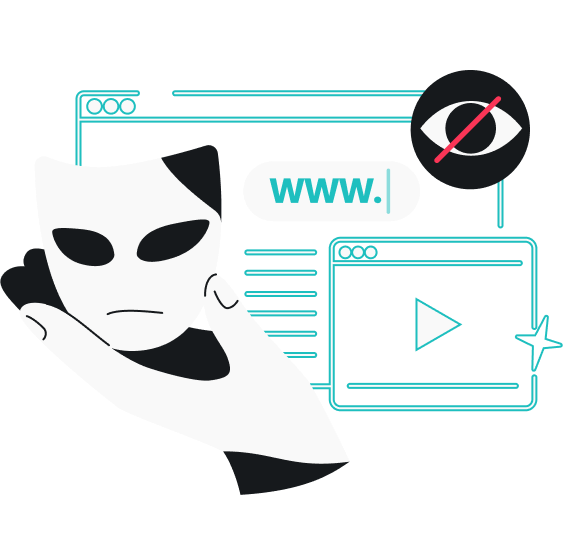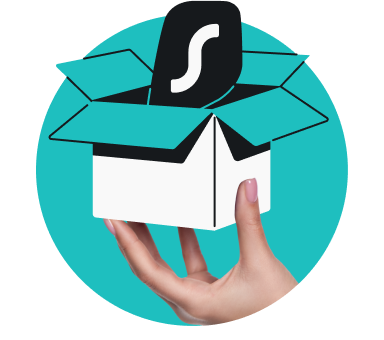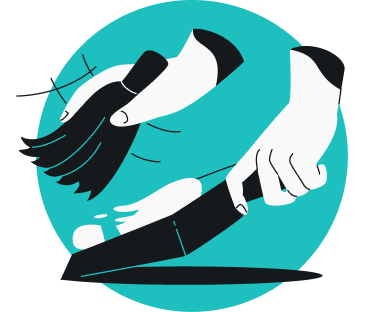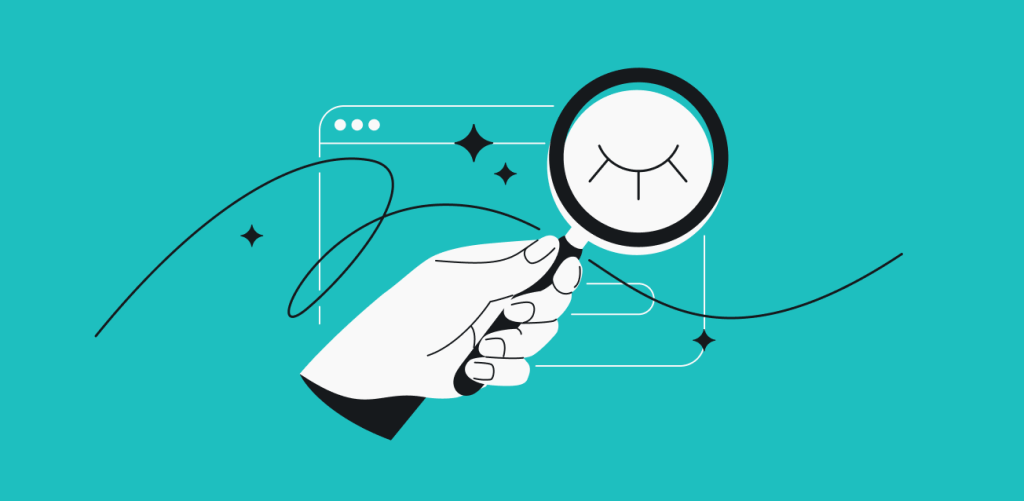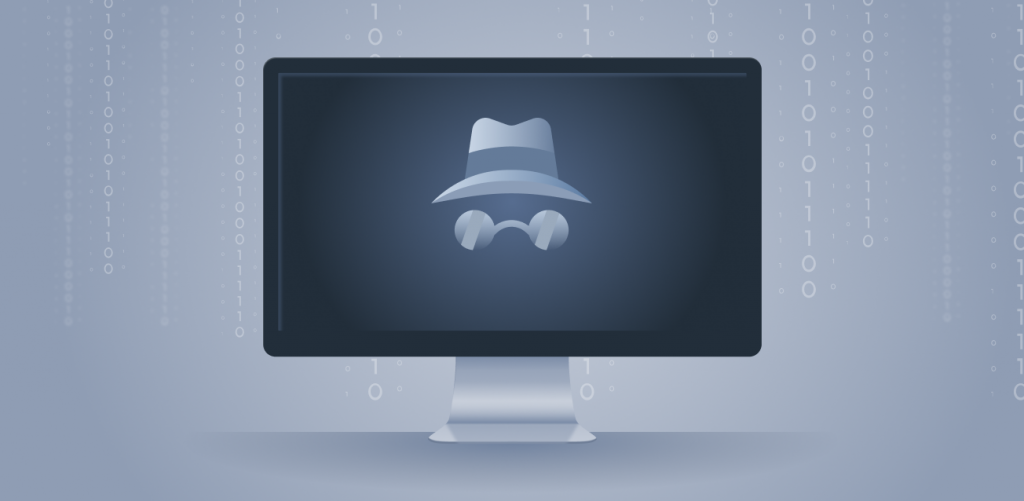More and more people are turning to anonymous browsing to stop tracking, avoid targeted ads, and protect themselves from online threats.
While true anonymity on the internet isn’t possible, several tools can limit your digital footprint and reduce how much of your data others collect.
Follow along to explore the top methods people are using in their quest to browse anonymously.
What does anonymous browsing mean?
Anonymous browsing refers to online activity that doesn’t leave any identifiable trace, hiding your identity from websites, your ISP (Internet Service Provider), and network administrators. In theory, browsing anonymously:
- Prevents websites from collecting your browsing history, cookies, and other personal information;
- Provides added security when using unsecured shared or public Wi-Fi networks;
- Masks your online activity, making it harder for your ISP and other third parties to track your behavior.
Anonymity vs. privacy
Anonymity and privacy aren’t the same. When you browse anonymously, you’re hiding your identity. The goal is unlinkability — observers may see your activity, but they can’t tie it to you.
An example of anonymous browsing is making an online post using a username or pseudonym, not your real name. Your identity is hidden while the content itself remains public.
With privacy, the goal is control and confidentiality. When you try to increase your online privacy, you’re limiting what details about your activity are exposed, even if your identity is known.
For example, online banking over an HTTPS connection is considered private. Your activity enjoys a level of privacy protection, but it isn’t anonymous — the bank knows it’s you.
Why anonymous browsing matters
Browsing with as few identifiable markers as possible is important because it can lead to a cleaner, safer online experience. Anonymous surfing limits the following parties from misusing your personal data:
- ISPs: your ISP sits between you and the internet, so it can learn a lot about you just from the sites you visit. More anonymity means your ISP sees less about your browsing behavior, so it has less info to profile or resell;
- Websites and apps: these try to trace your visits to a specific identity. Anonymity makes it harder for them to tie activity back to you or follow you across sessions;
- Advertisers and data brokers: advertisers want to build ad profiles for each internet user, but anonymity limits the personal data they can attach to someone’s browsing patterns. This results in fewer targeted ads. There’s also less private info out there for data brokers to collect;
- Governments: oppressive regimes can use surveillance and legal requests to identify internet users, log what people are doing online, and restrict access. Trying to be anonymous helps protect your identity when you read, speak, or post something on the web, lowering the safety risk for journalists, activists, and everyday users.
Note: True anonymity on the internet isn’t guaranteed. Tools can reduce who can link activity back to you, but they don’t make you invisible. Treat anonymous browsing as risk reduction.
How to browse the internet anonymously
Here are the main tools available to internet users when they’re trying to browse anonymously:
1. VPN
Using a VPN (Virtual Private Network) is an excellent way to protect your identity and data on the internet. A VPN encrypts all your internet traffic and masks your IP (Internet Protocol) address by connecting you to a remote VPN server.
How does this protect your identity?
Instead of your ISP or any online snoops seeing which sites you visit, they see only an encrypted internet connection. And instead of websites seeing your actual IP address and approximate location, they see the VPN server’s IP. This makes it harder to link your activity back to you personally.
An added benefit of using a VPN is that it encrypts all your traffic, not just your browser or search engine. You get privacy protection while streaming, banking, shopping, gaming, and more.
Free VPN providers often can’t afford to offer secure encryption or advanced privacy features. If you’re looking for a top-tier solution for anonymous browsing, a paid VPN like Surfshark is your best bet.
2. Tor Browser
The Tor Browser is popular among internet privacy enthusiasts. It routes your traffic through a network of relays that encrypt it before it’s sent to the internet. Tor is also the primary anonymous web browser used to access the dark web and .onion websites.
While Tor gets users pretty close to fully anonymous browsing, it comes with numerous risks. The dark web hosts many illegal activities, and you can fall victim to a crime or face legal consequences yourself if you engage with the wrong dark web pages — even accidentally.
Moreover, Tor’s multiple encryption layers often lead to a much slower internet connection. Trying to surf anonymously on Tor can be bearable, but more intensive activities like streaming will likely result in a painfully slow experience.
3. Private search engines
Popular search engines like Google and Bing don’t exactly promote anonymous browsing. These closely track your search history, log your location, and record the devices and browsers you use, often tying searches to your account for ad targeting.
Thankfully, there are alternatives — you can use private search engines that protect users from data-monitoring efforts.
Private search engines like DuckDuckGo, Startpage, or Qwant don’t track your search history. They also give you truly organic search results each time, but this could be a double-edged sword. Sure, you’re not getting ads or results based on your habits or preferences, but some users like the speed and convenience personalization gives.
Private search engines may not be as fast or robust as Google, but users looking for anonymous surfing likely think the ability to protect their search history is well worth it.
4. Privacy-focused browsers
Microsoft Edge, Google Chrome, and Safari all offer strong security features, but they’re not designed with maximum privacy as the default setting. If you’re striving for anonymous surfing, there are alternative browsers built specifically for more private browsing and safer searching.
Privacy-focused browsers typically block tracking cookies and delete your browsing history after each session. They prevent websites from collecting your personal info and help stop advertisers from building long-term profiles based on your activity.
The best browsers for privacy are open source and can block both malware and fingerprinting. These include Brave, Firefox, and Chromium-based browsers that aren’t affiliated with Google.
Note: Many of these browsers require you to manually adjust your settings to get any increase in privacy. Nevertheless, they’re still much better than Edge or Chrome when it comes to getting closer to anonymous browsing.
5. Alternative ID
You can generate a new online identity using a tool like Surfshark’s Alternative ID to increase your privacy. Alternative ID lets you create a new internet persona, including details like a new name, email address, and date of birth.
When you want to create an online account or sign up for a service, you often have to enter your personal information. With Alternative ID, you can enter your disposable generated details without ever giving out your primary ones. This prevents your real data from getting exposed online, bringing you one step closer to anonymous web browsing.
Practices to strengthen your anonymity
These pro-privacy habits complement the tools above in bringing you closer to anonymous browsing.
Log out of Google
Staying signed in to your Google account links your activity across tools like Search, YouTube, Maps, and Chrome to a single identity, enabling cross-service tracking. Logging out breaks this connection, limiting how data from one product can inform another.
For even more separation, use a separate browser profile just for Google tasks and keep sensitive searches in a private window while remaining logged out. This restricts how data from one product can inform another and helps preserve your anonymity.
Keep your software updated
Outdated software may not protect you against newer privacy threats. Hackers can exploit vulnerabilities in older tools and steal your information. This data can be used to identify you and end your dreams of anonymous surfing.
Make sure that you update your software regularly. This should patch your biggest vulnerabilities and help protect your personal details from getting into the wrong hands.
Optimize your settings
You can adjust the settings on your device or browser to restrict the amount of data you share.
For example, you can choose to decline all cookies and notifications, both of which can be used to track your activity. Also, make sure to review your app permissions and block any unnecessary data sharing.
Limit social media use
All the privacy and security tools in the world can’t protect you from voluntarily sharing your data online. This issue is most prevalent on social media platforms such as Facebook, Reddit, Instagram, X, and many more.
If you’re openly sharing everyday activities and sensitive details, you can’t really expect to remain anonymous online. Not using social media at all is your best option for maximizing your privacy. If that’s not realistic for you, you can still avoid:
- Reacting to posts;
- Using your real name in your accounts;
- Sharing any information that might be linked to you;
- Grouping friends and family into contact lists, as this can expose personal relationships.
How can you get tracked online?
Understanding the different ways user information is tracked online is crucial if you want to make progress toward anonymous browsing. Here are the most common tracking methods.
- IP address tracking: your ISP, companies, and hackers can track your IP address to determine what sites you visit. Tools like a VPN are an effective way to hide your IP address;
- Account tracking: when you create an online account, you usually have to provide some personal information, like your name, email address, or even credit card number. Once logged in, your browsing activities are often easier to track since they’re linked to your account;
- Cross-site tracking: cross-site tracking happens when companies track your browsing behavior between websites. If you use your Google or social media accounts to log in on different web pages and platforms, this becomes particularly easy;
- Pixel tracking: a tracking pixel is a small graphic that’s downloaded when you load certain websites. Similar to cookies, downloaded pixels let companies track your activity. Turn off automatic image downloads in your browser to prevent this issue;
- Device fingerprinting: each device has a digital fingerprint that can be used to track certain information. This fingerprint can give out data like your IP address, time zone, and the plugins you’re using. Routing internet traffic through a VPN server makes your device very difficult to identify;
- Social media widgets: while it’s incredibly easy to interact with others via comments, shares, and reactions, any activity can be linked back to you.
Is private browsing (Incognito mode) the same as anonymous browsing?
No, using private browsing — also known as Incognito mode — doesn’t make you anonymous online.
Both private browsing and Incognito mode refer to a browser feature that limits local data storage during a single session. It simply tells your browser to delete your history and cookies after you close it.
This hides your activities from other users who share your device, but, unlike a VPN, it doesn’t encrypt your data and does little to hide your identity. Entities like your ISP and network administrators can still see your website activity and IP address, and regularly deleting your Incognito history may be needed.
Is being completely anonymous online possible?
No, total online anonymity isn’t realistically possible. Various tools and habits can reduce your risk of revealing private details on the web, but complete online anonymity can’t be guaranteed.
Using the best anonymous VPN, private browsers, and private search engines can still get you far. You can also refrain from disclosing personal information online, but it’s ultimately up to you to decide how much convenience you’re willing to give up in the name of anonymous surfing.
Protect yourself with Surfshark One
The Surfshark One bundle is a comprehensive cybersecurity suite that just might bring you as close to anonymous browsing as possible. With tools like VPN, Alternative ID, Antivirus, and Alert, Surfshark One is built to protect you from all angles, whether it’s your connection, devices, or data.
A single Surfshark VPN subscription offers unlimited simultaneous connections on all major platforms and is backed by a 30-day money-back guarantee.
See what Surfshark One can do for your anonymous browsing today.
FAQ
Can I be anonymous with a free VPN?
No, you can’t be anonymous with a free VPN. Millions of user records are leaked by free VPNs every year, and some free VPNs may even sell user data.
A free VPN might change your IP address, but a paid VPN is needed for enhanced privacy protection.
What are the best anonymous browsers?
No web browser can guarantee anonymous surfing, as there’s always a chance some parties will be able to access your data. Different types of browsers, like Brave and Firefox, may keep certain personal details private, but these still don’t offer as much protection as a VPN.
Is the Tor Browser safe?
Yes, Tor is generally safe if you use it for normal internet browsing. However, using Tor doesn’t mean your data and activity are always protected.
For enhanced privacy protection, use a VPN to encrypt your traffic and mask your IP address.
Are private search engines really safe?
Yes, private search engines are typically safer than traditional search engines when it comes to data collection, but they’re not completely risk-free.
Most private search engines don’t track your searches, store personal info, or build user profiles. Nevertheless, they may still use servers, browsers, and internet connections that could expose user data.

